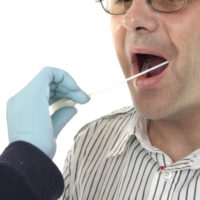Police Cheek Swabs for DNA

Police could wander through your private property at any time without the Fourth Amendment’s protection against unreasonable searches. Thanks to the Fourth Amendment, search of your property requires a warrant signed by a judge. But what if police officers were allowed to swab your cheeks after your arrest for DNA identification? Would you find that a reasonable search?
The Supreme Court does. On Monday, June 3, 2013, the Supreme Court decided in Maryland v. King that DNA sampling after an arrest for a ‘serious offense,’ or when officers ‘bring the suspect to the station to be detained in custody,’ does not violate the right to protection of unreasonable searches.
Alonzo King was arrested in 2009 on a charge of second-degree assault. After his arrest, the police immediately took a DNA swab from his cheek and he was matched to an unsolved rape from six years ago. King was later convicted of rape and sentenced to life in prison. Many will find this a positive development, while others worry about misuse of this data and what this change may mean to arrestees who are cleared of any wrongdoing.
The Court relied on information showing that modern technology has advanced so greatly that taking DNA from the cheek is the same as taking ones fingerprints after an arrest. If you are concerned about this, it’s understandable. DNA testing can feel invasive and violating and especially so to an innocent person.



